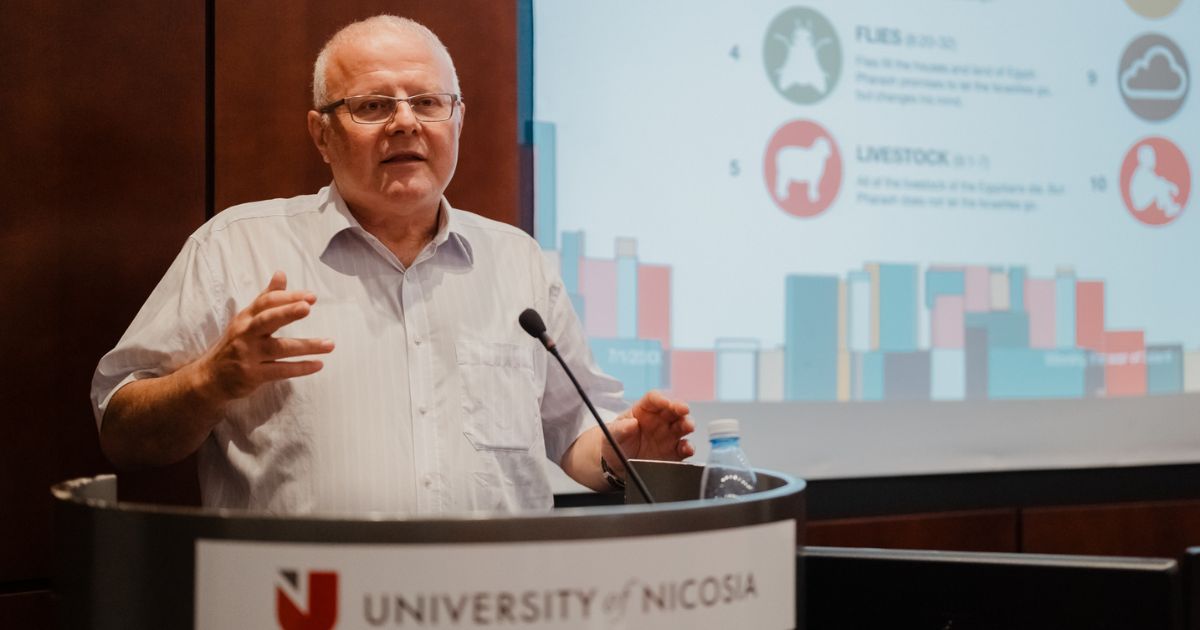Smart Cities under the microscope of the Erasmus+ CRISIS Project
Project members discussed Resilience and the Path Forward during a transformative event and visit to the Control Center of the Smart City of Nicosia
During a Multiplier Event that took place on 5 October, 2023 at the University of Nicosia, visionaries and experts were brought together to discuss critical topics with respect to smart city development and the transformative potentials offered by the Erasmus+ Programme.
The event entitled “Smart Cities: Resilience and the Path Forward”, was organized under the Erasmus+ CRISIS Project (www.crisisproject.eu).
As part of the discussion, Mr. Stelios Mavromoustakos, Director of the Foundation for the Management of European Lifelong Learning Programmes (TBC), took the floor and outlined the Erasmus+ Programme and its implementation in Cyprus. He provided insights on the multitude of possibilities this program offers to youth and academics.
Mrs. Nadia Lortzie, in charge of the strategy and implantation of the Smart City of Nicosia, shared an in-depth look at the Smart City Nicosia initiative through her presentation “The Vision of the Nicosia Municipality on Smart Cities.” With special reference to the city’s international ranking (#117, globally), she discussed the ongoing and future plans to reinforce the Smart City Nicosia ecosystem.
Mrs. Elena Poulli, Officer A’ at the Deputy Ministry of Research, Innovation, and Digital Policy, presented the strategic plan for developing smart cities in the Republic of Cyprus. Her presentation had the title “The Vision of the Deputy Ministry of Research, Innovation and Digital Policy”. She outlined how the government envisions using technology and innovation to create more resilient and connected urban environments.
Prof. Panos Fitsilis at the University of Thessaly coordinating the CRISIS project, underlined “The Human Factor in Smart Cities” and referred to the aim, objectives, and expected outcomes of the project making references to recent events and how the project could address pressing challenges and foster resilience in smart city development.
Prof. Angelika Kokkinaki, Dean of the University of Nicosia’s School of Business, elucidated the targets of the OpenDCO Erasmus+ Project (www.opendatacity.eu), focusing on promoting digital competences within the context of open data and smart cities. Attendees were also invited to participate in an upcoming Massive Open Online Course (MOOC), on open data for smart cities that will lead to a certification for the relevant competences.
Mr. Mavromoustakos took the floor once more and congratulated the consortium on the outcomes of the CRISIS project underlying the importance of similar projects on the employability prospects of students and alumni in the EU.
The event concluded with a small reception, offering attendees the opportunity to network and engage in further discussions with the presenters and fellow participants.
Visit to the Control Center of the Smart City of Nicosia
The following day, the consortium of the Erasmus+ CRISIS project had the chance to visit the Control Center of the Smart City of Nicosia.
The aim of the meeting was to foster collaboration and knowledge sharing among the Erasmus+ CRISIS Project partners, focusing on enhancing urban sustainability and resilience. The Smart City of Nicosia served as an ideal backdrop for discussions on smart cities enabling technologies, infrastructure and policies.
The project consortium members visiting the Control Center of the Smart City of Nicosia included representatives from the University of Nicosia, Hellenic Open University, University of Minho, University of Thessaly, Fern University in Hagen, as well as other stakeholders.
The Smart City of Nicosia was introduced to the project partners through insightful presentations by Mrs. Nadia Lortzie, and Mr. Charalambos Papadopoulos, from the Command and Control Center of the Smart City of Nicosia. Their presentations highlighted the city’s pioneering initiatives, cutting-edge technologies, and sustainable solutions, all aimed at making urban living smarter, safer, and more sustainable.
The meeting provided a valuable platform for networking, sharing best practices, and exploring opportunities for collaborative research and projects. Attendees were impressed by the Smart City’s commitment to leveraging technology and data-driven solutions for the benefit of its citizens. Project partners were particularly impressed by the ranking of the Smart City of Nicosia (#117, globally) given the fact that it is operating for a very short period.
Partners explored topics for co-operation with the Smart City of Nicosia and through this visit, they underlined their dedication to enhancing and advancing co-operation with the Smart City of Nicosia.


